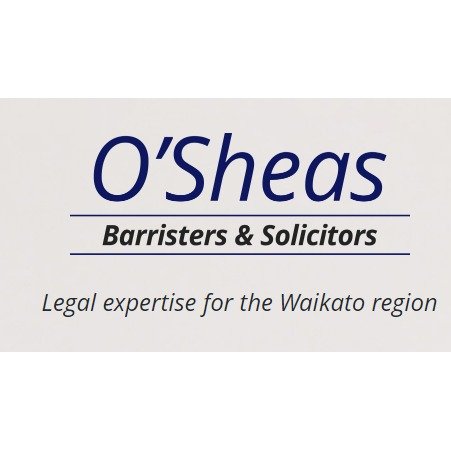Best Disability Lawyers in New Zealand
Share your needs with us, get contacted by law firms.
Free. Takes 2 min.
Or refine your search by selecting a city:
List of the best lawyers in New Zealand
About Disability Law in New Zealand
Disability law in New Zealand is designed to protect the rights and enhance the opportunities for people with disabilities. The country is committed to ensuring that individuals with disabilities enjoy the same rights and quality of life as all citizens. Various laws, policies, and frameworks have been implemented to support persons with disabilities, including the New Zealand Disability Strategy and the signing of the UN Convention on the Rights of Persons with Disabilities (UNCRPD). These efforts highlight New Zealand's dedication to inclusivity, accessibility, and respect for individuals with disabilities.
Why You May Need a Lawyer
There are several situations where individuals with disabilities or their advocates might require legal assistance:
- Discrimination: If you face discrimination at work, in education, or in accessing services due to a disability.
- Access to Services: Challenges in accessing health care, transportation, or public facilities.
- Difference in Education: If a child with disabilities is not provided accommodations or equal opportunities in education.
- Employment Issues: Unfair treatment, lack of reasonable accommodations, or wrongful dismissal.
- Social Welfare Benefits: Problems with receiving appropriate benefits or support through social services.
- Rights Violations: Any situation where your rights as a person with a disability under the NZ legal framework are not respected.
Local Laws Overview
The key aspects of disability laws in New Zealand include:
- Human Rights Act 1993: Prohibits discrimination on the grounds of disability in various areas, including employment and education.
- New Zealand Bill of Rights Act 1990: Guarantees fundamental rights and freedoms, which apply to all citizens, including those with disabilities.
- Education Act 1989: Provides guidelines for making educational facilities inclusive for students with disabilities.
- Building Act 2004: Ensures that buildings are accessible to and usable by people with disabilities.
- Disability (United Nations Convention) Act 2008: Reflects New Zealand’s commitments under the UNCRPD, highlighting core principles such as respect, non-discrimination, and participation.
Frequently Asked Questions
What is considered a disability under New Zealand law?
A disability is generally defined as any condition that impacts an individual’s ability to perform activities or participate in normal daily life. This can include physical, sensory, psychiatric, neurological, and intellectual disabilities.
What protections do individuals with disabilities have against discrimination?
The Human Rights Act 1993 offers protection against discrimination in employment, education, housing, and other public services, ensuring people with disabilities are treated equally and fairly.
Are employers required to provide accommodations for employees with disabilities?
Yes, employers are required to provide reasonable accommodations to employees with disabilities to ensure they can perform their jobs effectively, as long as it does not cause undue hardship to the employer.
How can I ensure my child with a disability receives proper education?
The Education Act mandates that schools provide suitable accommodations and support to students with disabilities, ensuring equal access to education.
What can I do if a public building is not accessible?
You can report the issue to the local council or building authority, as all public buildings are required to comply with the accessibility standards set by the Building Act 2004.
What benefits are available for people with disabilities in New Zealand?
Various benefits are available, including the Disability Allowance, Supported Living Payment, and other social services aimed at supporting individuals with disabilities and their families.
Can I get legal aid for a disability-related legal issue?
Yes, individuals may qualify for legal aid based on their financial situation and the type of legal issue they face, focusing on human rights and discrimination cases.
What if I disagree with a decision made by a social service regarding my disability benefits?
You have the right to appeal the decision. It is advisable to seek legal advice to understand the appeals process and prepare your case effectively.
How does the UNCRPD impact disability rights in New Zealand?
The UNCRPD guides the development of policies and legislation in New Zealand, emphasizing non-discrimination, participation, and equal access for people with disabilities at all levels of society.
Who can I contact if I believe my rights as a person with a disability are being violated?
You can contact the Human Rights Commission, the Office for Disability Issues, or seek assistance from disability advocacy organizations.
Additional Resources
There are several resources available for individuals seeking information or assistance regarding disability in New Zealand:
- Human Rights Commission: Provides support and information on human rights and complaints related to discrimination.
- Office for Disability Issues: Works on policies and provides resources about disability rights and support in New Zealand.
- CCS Disability Action: Offers advocacy and support services for individuals with disabilities.
- IHC New Zealand: Provides services and support to individuals with intellectual disabilities and their families.
- Community Law Centres: Offer free legal help, consultations, and resources on disability rights and issues.
Next Steps
If you are in need of legal assistance related to disability issues, consider taking the following steps:
- Document Your Situation: Keep detailed records of any incidents, correspondence, and interactions that relate to your case.
- Educate Yourself: Familiarize yourself with the relevant laws and rights that apply to your situation using the resources mentioned above.
- Reach Out for Help: Contact a legal professional or disability advocacy service for advice tailored to your specific circumstances.
- Consider Legal Aid: If financial constraints are a concern, inquire about the possibility of receiving legal aid for your case.
- Prepare for Advocacy: Whether pursuing a claim or seeking resolution, preparation and professional guidance will strengthen your position.
Remember, addressing disability-related legal issues can be complex, but you do not have to navigate them alone. There are numerous resources and professionals ready to assist you in advocating for your rights.
Lawzana helps you find the best lawyers and law firms in New Zealand through a curated and pre-screened list of qualified legal professionals. Our platform offers rankings and detailed profiles of attorneys and law firms, allowing you to compare based on practice areas, including Disability, experience, and client feedback.
Each profile includes a description of the firm's areas of practice, client reviews, team members and partners, year of establishment, spoken languages, office locations, contact information, social media presence, and any published articles or resources. Most firms on our platform speak English and are experienced in both local and international legal matters.
Get a quote from top-rated law firms in New Zealand — quickly, securely, and without unnecessary hassle.
Disclaimer:
The information provided on this page is for general informational purposes only and does not constitute legal advice. While we strive to ensure the accuracy and relevance of the content, legal information may change over time, and interpretations of the law can vary. You should always consult with a qualified legal professional for advice specific to your situation.
We disclaim all liability for actions taken or not taken based on the content of this page. If you believe any information is incorrect or outdated, please contact us, and we will review and update it where appropriate.
Browse disability law firms by city in New Zealand
Refine your search by selecting a city.












